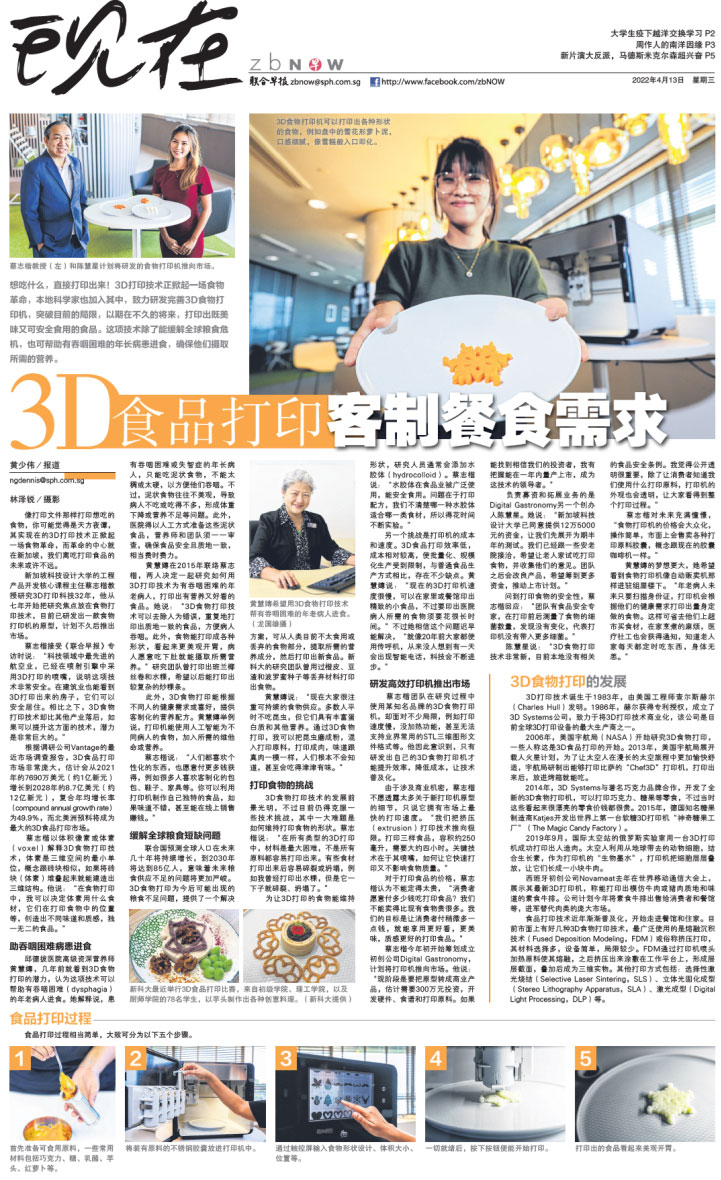Campus life set to return as Covid-19 measures ease
Campus life set to return as Covid-19 measures ease
18 Apr 2022

Straits Times, 18 Apr 2022, Campus life set to return as Covid-19 measures ease
Students are looking forward to the return of residential campus life as universities ease Covid-19 safe management measures.
Since January, more in-person activities have been held as the institutions explore ways to bring back events, such as orientation camps and hall activities, on a larger scale.
Some institutions like the Singapore University of Technology and Design (SUTD) and the National University of Singapore (NUS) said that weekly antigen rapid tests (ARTs) are no longer necessary if students, including hall residents, are vaccinated.
Associate Professor Ho Han Kiat, NUS’ dean of students, told The Straits Times: “As Singapore transitions to a Covid-19-resilient nation and resumes more activities safely, NUS has also gradually brought back core aspects of campus life such as in-person classes and student life activities from arts and culture, community outreach to sports training, guided by prevailing safe management measures…
“With the large majority of our students and staff fully vaccinated, we will explore how more elements of campus life can be brought back, as we continue to closely monitor the Covid-19 situation.”
An SUTD spokesman said: “Although (activities for student residents) were initially held online, SUTD is gradually moving such activities towards a hybrid mode in recent weeks and will eventually open them to more residents in physical settings in a safe and controlled manner in line with national guidelines.”
In response to queries on the demand for hostel living, the universities said their hostel occupancy rates are comparable with, or slightly lower than, those in pre-pandemic days.
At NUS and Nanyang Technological University (NTU), the number of students staying on campus is currently maintained at a level lower than before the pandemic to “ensure a safe residential density”, said their spokesmen separately.
Before Covid-19 hit, NTU’s 23 halls could accommodate 13,600 students. NUS can house 11,000 students across its five residential colleges, six halls of residence, two houses and two student residences.
Currently, about two-thirds of SUTD’s undergraduate population stay on campus, similar to pre-Covid-19 times, said its spokesman. SUTD has about 1,500 undergraduates.
A Singapore Management University (SMU) spokesman said it received a comparable number of applications for its Prinsep Street Residences, which houses 1.4 per cent of its student population.
All available beds at the residences have been leased.
Students in hostels are particularly eager to return to larger-scale activities that had ground to a halt during the Covid-19 pandemic.
In 2020, students had to move out of hostels temporarily when some of the university residences were converted into quarantine sites or facilities for Covid-19 patients to recover.
NTU student James Ong, 25, president of Hall 10, said: “With the easing of measures, everyone is waiting for instructions from the school… The minute the green light is given, we will definitely look to increase the physical touchpoints with our residents.”
The second-year business undergraduate added: “Because of the pandemic, we couldn’t have big-group hotpots, BBQ sessions… But the events have still been there, just in different formats.”
Ms Calista Ho, 21, vice-president of NUS’ Eusoff Hall, said she was fortunate she could stay on in campus since moving in in August 2020. “The batch before me had to move out during the circuit breaker earlier that year, but by the time I started university, all the Covid-19 protocols at the hall were in place.”
The economics and business double major said she had some initial worries about catching Covid-19 at the hall and passing it to her family when she went home on weekends, but the weekly ARTs she took on Friday nights helped reassure her.
Ms Ho said she is looking forward to activities for larger groups of hall residents. Eusoff Hall had its first hall-wide event – an awards ceremony – on April 9 after the easing of measures. It was attended by about 80 people, up from the previous capacity of 50.
“Now more people can eat together in groups of 10 in our dining hall or go out for supper during night cycling, instead of five. It helps to lighten the atmosphere quite a bit, so students are happy about it,” she said.
“We’re also planning a camp for pre-university students entering NUS this year to be held physically in June. This would be the first physical camp in two years,” said Ms Ho. “At least some sort of normalcy is coming back.”
Precautions are still in place, though, and hostel residents who test positive for Covid-19 will have to comply with the Health Ministry’s protocols.
They have to self-isolate in designated recovery rooms on campus, while those with local homes may recover at home. An NTU spokesman said those who reside in double rooms may request to be relocated to a single room during their self-isolation period.
Mr Ong, who has stayed in NTU since August 2020, said: “At the start, it was a necessity for me to stay in the hall because NTU is so far from my home near Singapore Expo. But over time, it is the sense of community that has also kept me here.”
